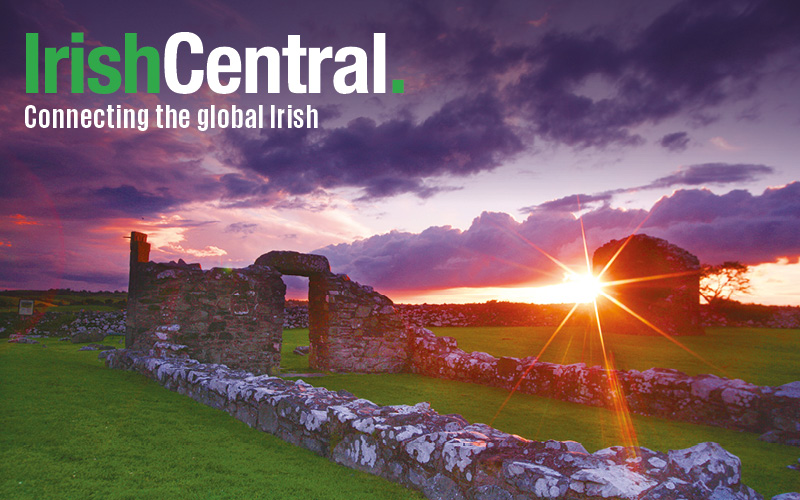Attracting foreign investment to Ireland has been a key pillar of Irish economic policy for decades. Successive Irish governments have maintained a consistent and progressive approach to winning investment in Ireland from abroad. The reward for this has been over a thousand companies locating operations in Ireland, including some of the most successful companies in the world, Apple, Intel, Pfizer and Google to name a few.
Developing world class capability in a very competitive space, implementing government policy in the area, and winning foreign investment for Ireland is IDA Ireland. Long serving IDA Ireland CEO Barry O’Leary recently stepped down and his replacement as CEO, Martin Shanahan, started his role six weeks ago.
IrishCentral caught up with Martin Shanahan this week to get his reaction to the recent Irish budget, and what the implications were for his organization.
Can you tell us about the recent changes to Ireland's tax code relating to FDI and what implications if any this will have on FDI in Ireland?
On Budget Day, Minister for Finance Michael Noonan greatly enhanced the FDI offering of Ireland with a range of new measures, which IDA very much welcomed. The measures will position Ireland to sustain and win inward investment in the years ahead.
With employment at overseas companies at a record of over 166,000, the Budget measures announced by Minister for Finance, Michael Noonan TD, last week will further strengthen what Ireland can offer overseas investors. IDA was pleased to see the government once again committing itself firmly to retaining Ireland’s attractive 12.5% corporate tax rate, a core pillar of Ireland's competitive offering.
More specifically the IDA particularly welcomes new measures including:
- A new “best in class” Knowledge Development Box to be legislated for in 2015.
- Changes to the R&D tax credit system which make it more attractive to companies.
- An improved Special Assignee Relief Programme (SARP) that will attract key decision makers into Ireland.
- A Reduction in the top level of income tax.
Groupon opens Engineering and Marketing Centre of Excellence in Dublin, creating 100 roles #WhyIreland - http://t.co/VtvbrJaz3g
— IDA Ireland (@IDAIRELAND) October 22, 2014
The IDA also welcomed pro-active changes to Ireland’s tax residency rules which provide clarity for companies operating in Ireland or seeking to invest in Ireland in the future. This change confirms Ireland’s international reputation as a country with a stable, transparent and fair taxation regime by bringing clarity to how Ireland’s tax rules interact with tax regimes present elsewhere. Ireland's tax regime has been built around having economic substance, in terms of employees, payroll and capital investment.
The changes to the residency rules, which will be introduced from the 1st of January 2015, will not alter the core attribute of Ireland's tax offering, which will remain highly competitive. Transitional arrangements will apply to companies already incorporated in Ireland lasting until December 31st, 2020.
Overall Ireland’s credentials as a pro-investment location are cemented by the changes and reaction from client companies has been very positive. But IDA and other stakeholders need to continue to get the message across that Ireland continues to offer a suite of benefits for those choosing to locate here.
What can you say to reassure companies that Ireland is still an attractive and competitive place to set up operations and do business?
Ireland has been a major player in FDI for many decades and we have developed a real skill set and competence in helping companies to internationalise their operations and that is not going to change. Ireland retains a whole range of advantages- there are what we call the natural advantages of our geographical location, our membership of the EU/Eurozone and obviously we are English-speaking. But added to these are what we call the four T’s (talent, track record, tax and technology) and these remain pivotal to all companies coming to locate here. The track record is a particularly important attribute of the offering, as companies take notice of what their peers and competitors do and Ireland has some of the biggest companies in the world located here. That really resonates. Our client companies who form a whole range of clusters in ICT, life sciences, financial services, are our biggest promoters, as they tell the story to other companies about how they have prospered and developed in Ireland.
2013 was one of the most successful years in the history of the IDA for attracting FDI to Ireland. How do you build on that or top that?
Yes 2013 was a very successful year and we remain quietly confident we can produce a similar performance in 2014, but the final quarter of the year is obviously going to be vital in that regard. More long term, we are currently developing a new strategy for the organisation and we aim to publish that in 2015, and that will provide the strategic roadmap for the future of the IDA and for FDI in Ireland .We are currently looking at all aspects of our business – Ireland’s proposition, our source markets and company supports. As in the past IDA will set ambitious targets for FDI in Ireland.
You are replacing a long term CEO in Barry O'Leary, what are some of the challenges facing the IDA in the next 1 - 5 years?
Yes I have been in the role for just over six weeks and it has been busy, but very enjoyable. The challenges for the organisation are multiple, but equally the IDA has been performing well against a very tough external backdrop for a number of years and there is no reason that should not continue. The FDI portfolio was greatly challenged over the years of the global financial crisis, but what strikes me is how well it has actually stood up to that test- FDI investors in large measure remained committed to Ireland during that period. But now the challenge is to deepen and broaden the portfolio, both geographically and sectorally.
In particular we need to help Ireland gain a larger share of the investment flows from what we call growth markets – for instance India and China. Geographical diversity is very important for any business; it is just the same for FDI and the IDA itself. Equally a greater dispersal of investments within Ireland is also important
Ultimately the choice is for the company, but IDA wants to have a fresh look at how greater regional dispersal within Ireland might be possible.
Another challenge is to make sure IDA is active in new sectors and sub-sectors, what we loosely call new forms of FDI. Already we have taken a strong interest in sectors like Internet of Things and wearables in the ICT area and bio-pharma in the life sciences sector, but we need to make sure we are playing in parts of the economy that are going to grow hugely in coming years. We have been lucky in IDA to catch many of the new `waves’ of technology and we want to make sure that continues to be the case. We are always aware of the challenge posed by competitors, but we are committed to being the best at what we do.
What are your aims and what do you believe can be achieved in that timeframe (1-5 years)?
My aim is to make sure IDA remains the best promotional agency in the world, no less than that. If IDA can remain best in class as an agency, Ireland will be the beneficiary, in terms of jobs and capital investment etc. on the ground. IDA doing well means Ireland doing well. Five years may seem like a long time, but things move quickly in the world of inward investment, so we need to remain agile and adaptable.
IDA Ireland has a hard won reputation as best in class internationally for winning FDI. Other countries are now catching up - how does IDA Ireland stay ahead of the pack?
I think you are right, competition has definitely increased, but IDA does not shirk from this competition, it embraces it. Ireland and Irish people are still very much pro-business. It is a cultural thing, you can see it our lifestyle, our sport and in the tourism product we offer in Ireland. It is a warm welcoming place to do business, and that is the bedrock of what we do. But we are very alert that we need to be in growing sectors of the economy and in growing parts of the globe. That is how we will stay on top. But IDA itself doesn’t have all the answers - the whole of the Government system for example plays a part in developing the FDI offering for Ireland. IDA receives a huge amount of support from the Government. The Taoiseach, Minister Bruton and other Government Ministers regularly participate in overseas marketing. The positive changes brought about by the Government’s Action Plan for Jobs are also important. It is this whole Government approach that helps us win investment.
With the recent changes to the tax code - what is the offering you will be bringing to companies to invest in Ireland?
The offering revolves around competitiveness. For example the 12.5% tax rate of Ireland is maybe one of the most well-known tax `brands’’ in the world, and that stability for companies is huge. Nothing in the recent changes alters that. Added to this however are enhancements in the area of the R&D tax credit, our IP regime and our scheme to attract overseas executives, known as SARP to name just a few. The commitment to reduce personal incomes tax is also greatly welcome.
So what we will be saying to companies is, in a world of rapid change, particularly in the international tax arena, Ireland now has a settled tax offering, a competitive tax offering, and all other advantages Ireland has had for many decades (pro-business, a young skilled population, EU membership, English-language, geographical locations between relevant time zones) are still intact. Plus your peer companies are here already, we will be telling those we engage with and overall we think this is a compelling offering. I expect we will add to this offering in the New Year with our new strategy.
Ireland's 50 year overnight success story - FDI http://t.co/82MNKte9ce
— Stephen Smith (@StephenJPSmith) May 16, 2014
There has been some negative commentary internationally - particularly in the US around Ireland classed as a tax haven and being accused of sharp and unfair tax practice. How would you counter that? What message would you like to put out there about Ireland and her tax code?
There certainly has been a lot of media comment over recent months, but reaction and conversations with companies about tax have very much had a different tone, far more upbeat and understanding of the international changes that are taking place. Ireland has been picked out, in the way you describe, for a whole host of reasons, but particularly because many of the companies located here, are huge international brands, with high media visibility. That tends to skew things somewhat.
Ireland has strongly denied any suggestion of a tax haven status and I am happy to report that this accusation has been firmly put to bed by budgeting changes. This is not an issue of Ireland’s making but we are committed to playing our part.
Ireland is not some kind of international outlier on corporate tax; Ireland is a member of the OECD and an active participant in the OECD’s Base Erosion and Profit Shifting (BEPS) project. But thankfully I think the recent Budget changes have brought clarity and I expect Ireland’s position will now be a little better understood internationally, and also Ireland’s offering is also likely to be developing further on the tax front, with a knowledge development box on the way via government. So I think we are moving into a new phase and that will see Ireland better positioned.
CEO, IDA Ireland, Martin D. Shanahan was CEO of Forfás from 2010 to 2014 – the Government’s policy advisory agency for enterprise, trade, science, technology and innovation. Prior to joining Forfás, Shanahan held management responsibility in Fáilte Ireland for the professional development of the tourism sector.
Shanahan holds an M.Res (Educational Research) from Lancaster University, a M.Sc. and H.Dip from DIT and a B.Sc (Mgmt) from Trinity College Dublin. He has undertaken executive education in economics at Oxford University and at the Kennedy School of Government in Harvard.




Comments